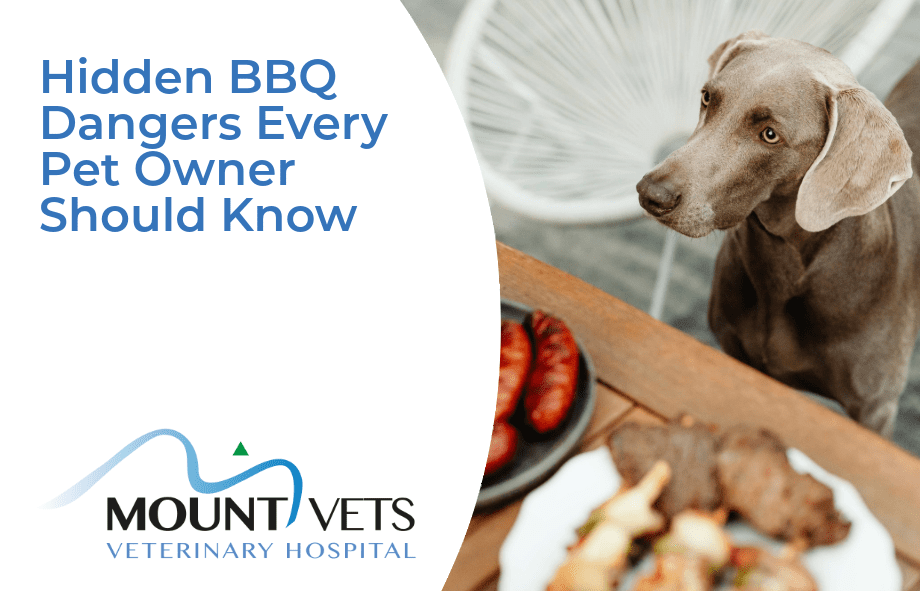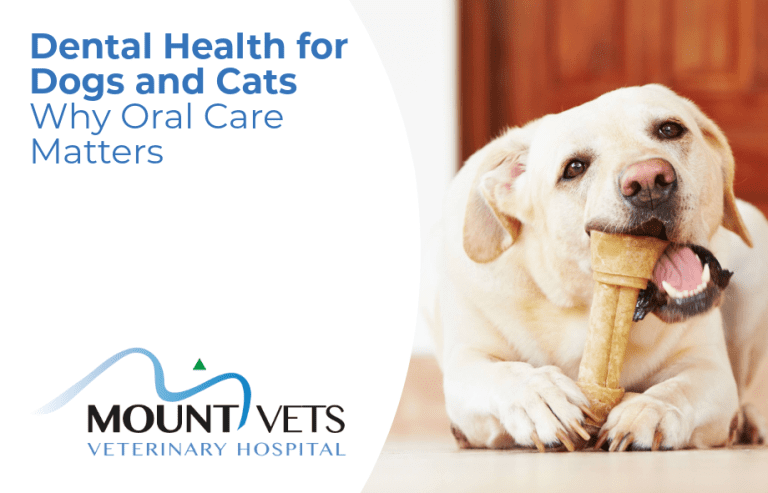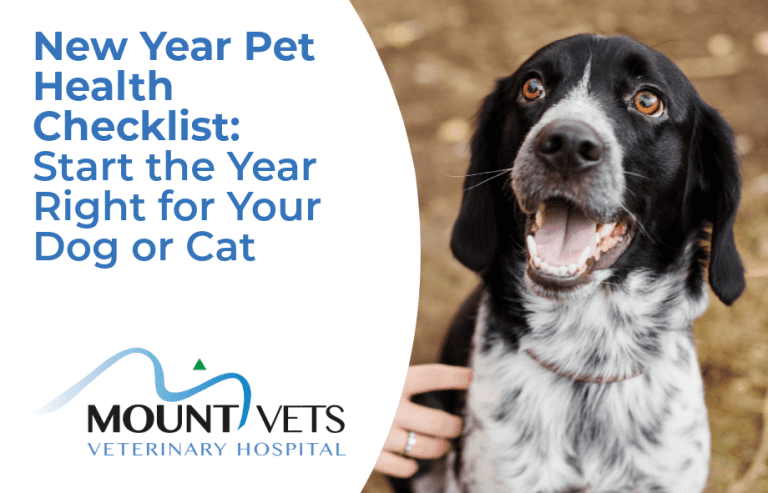August is a perfect month for the Great British Barbeque, the weather is generally good enough to spend an evening cooking outside, with the oven on standby just in case. At the vets however, June to August often means an increase in BBQ related pet incidents. In this blog we will discuss common BBQ dangers for pets and how to avoid them.
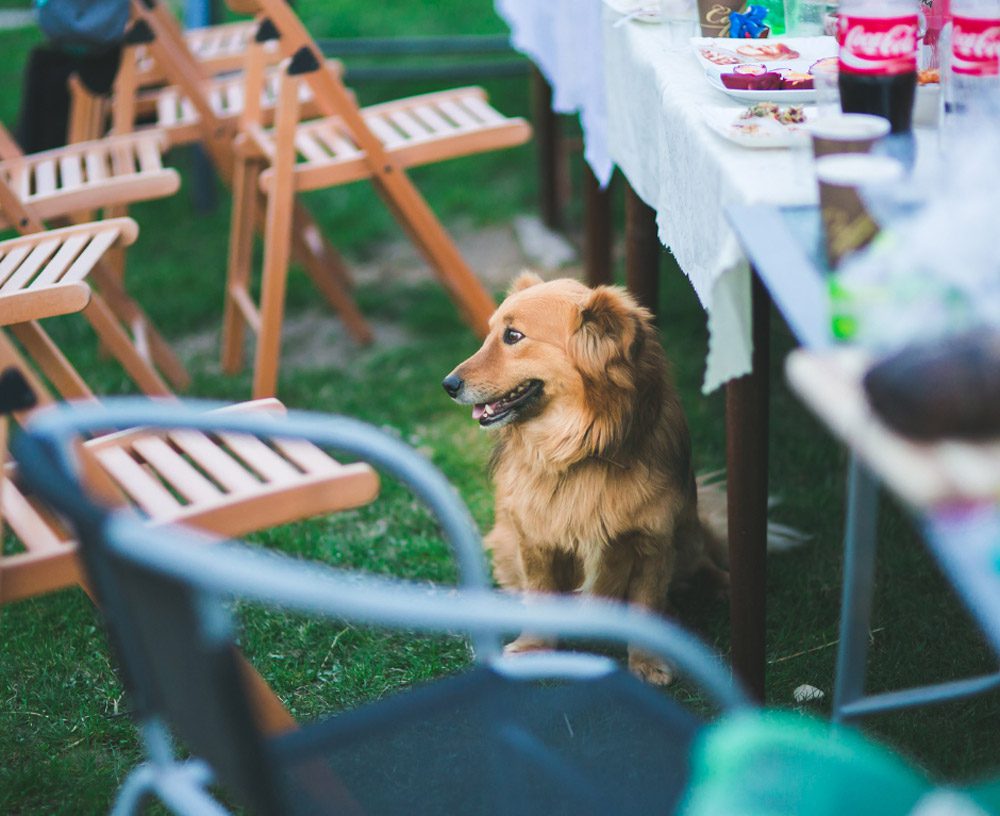
1 – Wooden skewers
Wooden BBQ skewers, often used for kebab style meat or koftas, are a big BBQ danger. They are a very dangerous combination of being very appealing to pets, due to the presence of meat residue, as well as being easy to chew and swallow. Owing to their shape and points, they become a very high risk of perforating the gastrointestinal tract when swallowed. Often when pets eat something that could be dangerous, vomiting can be induced to bring up the undesirable ingesta. However, in the case of skewers, this is generally not recommended as there is a risk of perforation of the oesophagus (food pipe) when vomiting. This means that pets that have eaten skewers often require a general anaesthetic to use an endoscope to retrieve the skewer parts, or an operation to cut into the gastrointestinal tract to allow removal. To avoid accidents such as this we would recommend disposing of skewers as soon as then have been used, ideally into a small cardboard box or other sealable container before being put into general waste. This means that if they pierce the bin liner or any pets go bin raiding, they are still protected.
2 – Corn on the cob
A classic BBQ food, corn on the cob takes second place in the biggest BBQ dangers. The corn itself is a safe and tasty snack for dogs, the cob on the other hand is a non- digestible hunk of plant material that serves as a serious risk of obstruction. This can look like choking initially, as the cob can become stuck in the oesophagus. Alternatively, they may pass into the stomach or intestines but then become stuck. This kind of obstruction will make your pet seriously ill and can be fatal without surgical removal. If your pet has eaten a corn on the cob, call your vets immediately. Inducing vomiting may be recommended if the cob has been chewed into smaller pieces. Common signs of a corn on the cob obstruction include vomiting or regurgitating, not passing faeces, lethargy and not wanting to eat or drink. To avoid this, it is recommended to account for all pieces of corn on the cob before and after cooking, ensuring you are disposing of as many cob pieces as you cooked. Disposing of them quickly will also help, as any dropped on the ground will present a tempting treat for any pet.
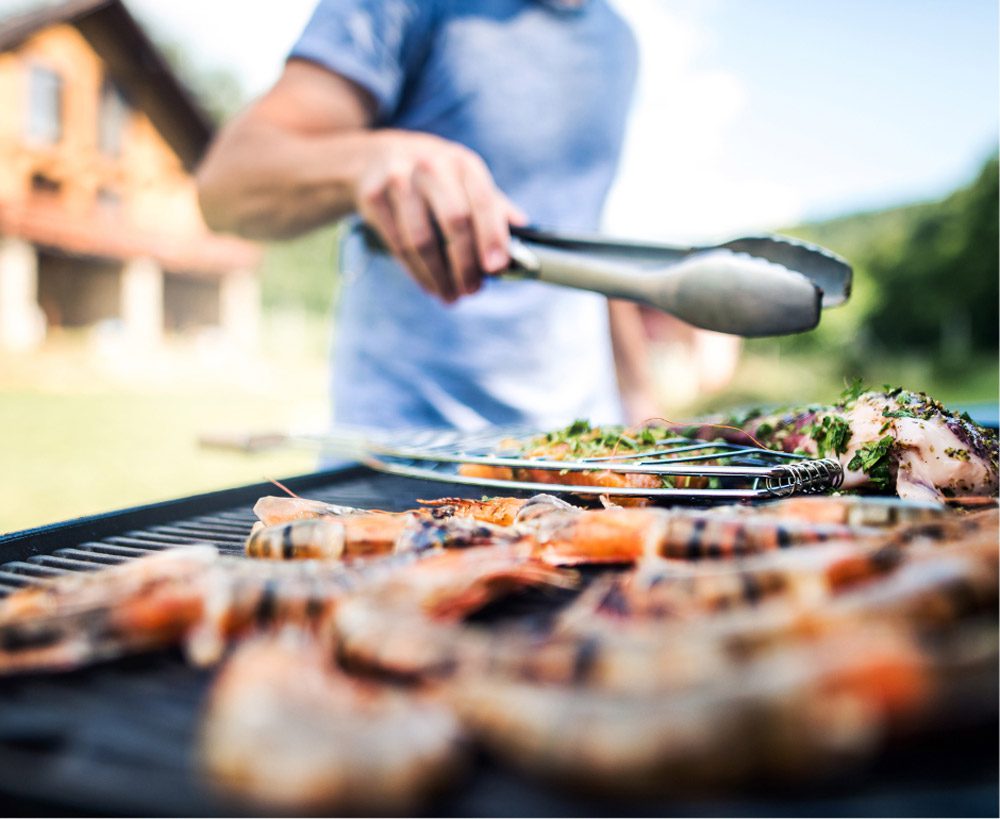
3 – Skip the snacks
As tempting as it is to share the BBQ joy with your pets, generally BBQ food is not good for dog and cat’s stomachs. Marinated meats should be avoided as they can contain spices that can cause stomach upset. High fat meats such as burgers and sausages should also be shared with caution as they can induce pancreatitis. This is a painful inflammatory condition of the pancreas resulting in severe stomach pain, vomiting and diarrhoea. If you want your pet distracted during a BBQ we would recommend dog safe food toys, such as Kong toys filled and frozen with your pet’s favourite food (wet food works best!). This keeps them entertained and distracts them from other BBQ temptations.
4 – Broken glass
Be mindful of any glass that gets broken during a BBQ, even the smallest shard can become stuck or cut an unsuspecting paw pad. We would recommend using plastic glassware outside.
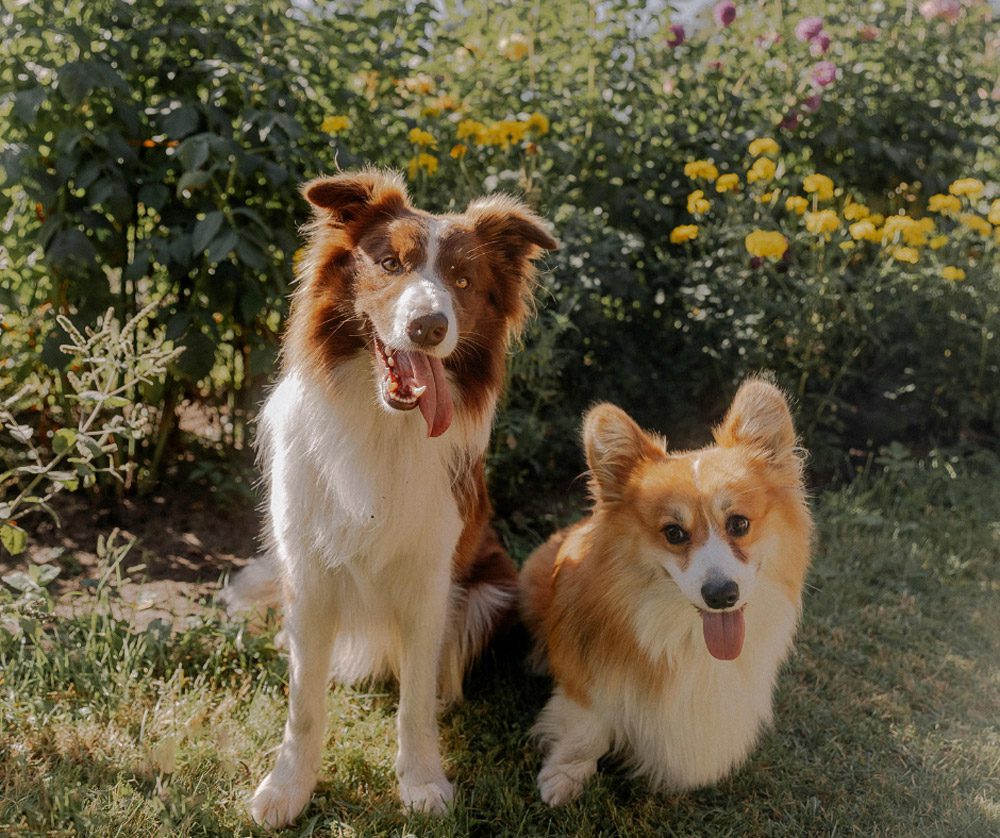
5 – Hot ashes and grills
Remember your pet’s sense of smell is a lot more sensitive than ours, meaning any meat residue on BBQ grills will provide a huge temptation to them. Direct contact with these grills can cause severe burns. With pets around we would recommend a BBQ that can be closed once cooking is finished.
BBQs are a fun summer past time and a great way of socialising with friends and family. Following these recommendations will help to make your BBQ as safe for your pets as possible and mean a stress-free summer activity for everyone involved. Happy barbequing!
If you are worried about your pet’s health this summer, please don’t hesitate to get in touch!
